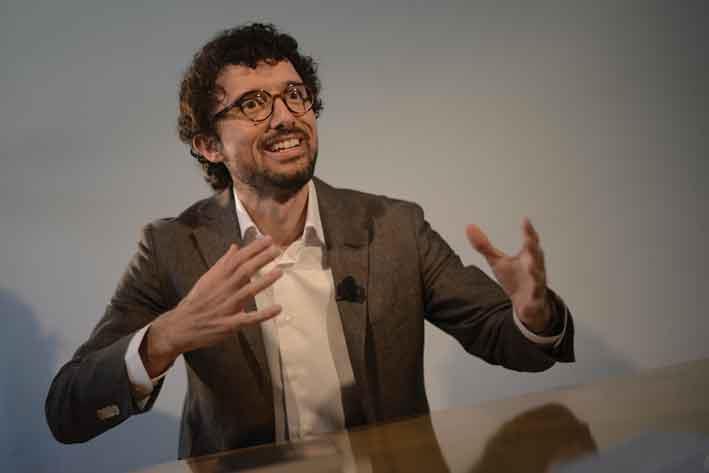Gozitan writer Pierre J Mejlak recently won the European Union Prize for Literature and in a week’s time, the English version of his book, Having Said Goodnight, will be launched in the renowned book retailer Waterstones. In an interview with Therese Bonnici he speaks about his love for writing and the way his books serve as his own life journal.
“In everything I write, there is always a piece of me, a person I encountered, a place I visited or something I have experienced, at least to some extent. That is one of the major reasons why I write, to keep some form of journal, to remember things. If I’ve visited a city, I might recall elements of the location, even if the city is not specifically mentioned by name. Books serve as a memoir with elements, people and places I have come to experience,” he tells The Malta Independent.
As a young boy, the author’s playtime also involved writing stories. “I was always surrounded by friends but some of the games I used to enjoy most during my childhood were those games I could play alone, the games I invented myself. Writing was, somehow, a game. I used to treat completing a story in the same manner as piecing together a jigsaw. I started writing after discovering the magic of books. Just as children imitate people they look up to, I wanted to try do what my favourite writers were doing.”
He continued: “I was particularly fond of Trevor Zahra’s books. I remember one time he gave a talk in Gozo and I was all geared up to ask him questions about writing. But when the opportunity came, I got way too excited and ended up asking nothing. I then sent him a long letter with all the questions I wanted to ask him, and a week later, the postman rang the doorbell because Trevor’s envelope did not fit in the letter box. He had sent me his latest book and a long letter advising what to read and more importantly how to read and what to look for in a book. I still hold on to that advice.”
For the past few years, the 32 year-old has been living in Brussels, where he is now launching his new book. “It’s important for Maltese writers to share their writing with people they don’t know and who don’t know Seeing your working in translation, read by people from different countries and different backgrounds, is a great source of motivation.”
But his love for our national language remains, although he does share his concerns about conserving it.

“On one hand, so many people are taking Maltese – the language and the literature- very seriously. So many people are dedicating their time to promote the language and its literature. But on the other hand, I come across more and more Maltese parents who choose to speak to their children only in English and these children are growing up not able to express themselves fluently in Maltese. I’m sure these parents have their reasons for doing so and they may well be valid ones, but these children have the ability to learn both languages very well. The only way to keep our language alive is by teaching it properly to our children.”
The EU Prize for Literature is awarded to emergent writers whose work, the jury believes, is sufficient enough to be made available to wider audiences. “I’m not the first Maltese writer to win the EU Prize for Literature. Immanuel Mifsud won it a few years ago, and other Maltese writers would be winning it in the future. So in a way, it is also an award that recognizes our contemporary literature.”
As a Maltese author, the award provides Mejlak with the opportunity to reach new audiences. The book, Dak li llejl ihallik tghid, has already been translated in English and by the end of this year it will be translated to French and Bulgarian.
“Translation is a lengthy, yet fascinating process that offers a number of challenges. You are not only translating a text from one language to another, but also placing that text against a different cultural background. What in one culture might not need any explanation, in another it could be confusing.”
He continued: “Working with Antoine Cassar and Clare Vassallo on the translation of ‘Dak li L-Lejl Ihallik Tghid’ was a great experience because both of them already knew me as a person and as a writer. Have the writer able to understand the target language makes things easier.”
“In the past few years some of my short stories were translated into languages I am not able to read like Serbian or Indonesian. In that case, looking at the translated text felt like looking at an abstract painting and wondering whether it is hanging in the right position. But each translation involves long discussions with the translator to clear possible misinterpretations. Knowing the translators and the publishers helps you realise they are handling your work with love and attention.”
Having Said Goodnight is published by Merlin Publishers and will be launched at Waterstones in Brussells on 23 April. It is available, on order, from Waterstones’ branches in the UK , from all bookshops in Malta and online from www.merlinpublshers.com